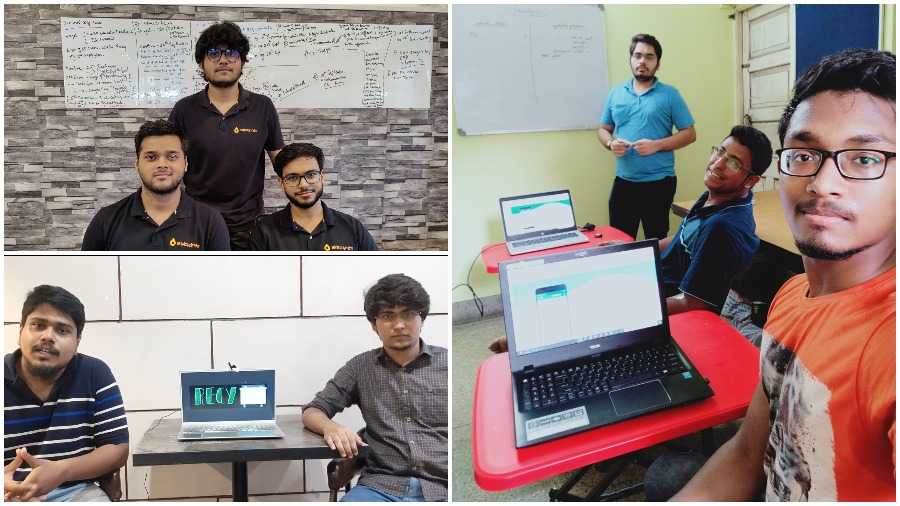In 2020, a lot of brick and mortar educational institutes closed down. One man’s poison is oftentimes another man’s meat. One of the fallouts of this was the increasing dominance of big educational technology or edtech companies and the emergence of new firms in the realm of online education.
But most of these companies cater to students preparing for various competitive exams for medical and engineering entrance, none for undergraduate (UG) college students in the so-called “general line”— such as commerce, science, arts, law, computer applications and business administration.
“We started Collegeshala.com with the aim of providing quality education to students of these streams ignored by big edtech companies,” says Upamanyu Chatterjee, chief executive of Collegeshala. The start-up operates as a platform wherein students can purchase “curated chapter-based notes” created by university professors. “Recently we have also come up with interactive virtual classes by professors for UG courses as well as placement training lessons,” he adds.
Collegeshala is currently present in West Bengal, Bihar and Odisha, and caters to 40,000 students, covers 150 subjects and enlists over 300 teachers. Now they are planning to expand to other geographies.
“In October 2020, we were able to raise a seed fund of Rs 1.83 crore from Odisha-based Lecturenotes Technologies,” says Upamanyu. The start-up was co-founded by him, Mohamed Fazal Mustafa — both BTech third-year students at Calcutta’s Heritage Institute of Technology — and Shouradeep Chakraborty, who is pursuing BCom at Seth Anandram Jaipuria College, Calcutta. All of them had tried their hands at building multiple start-ups before they finally launched Collegeshala.
Many start-ups are mentored by Freeflow, an incubator and accelerator for new ventures by students. Says Aaquib Hussain, co-founder of Freeflow, “We help create ventures. Once you come up with an idea for a start-up but you don’t have a team, we help build a team, arrange the seed investment and guide you.”
According to him, a start-up is a fruit of strong team work and Freeflow encourages the team to be heterogeneous. “However, it’s more important for a student to be skill-oriented, than possessing a degree,” says Aaquib.
Simpheal, a health technology start-up, was co-founded by Tirthankar Chakrabarti, Niranka Pal and Jyotiprakash Mukherjee. Both Tirthankar and Niranka completed their BTech — in applied electronics and instrumentation engineering, respectively — from the RCC Institute of Information Technology, Calcutta, in 2021. Jyotiprakash is an MBA in sports management and data analysis from Ivy Professional School, Pune.
The start-up was inspired by a problem faced by Tirthankar when his father was down with dengue in 2019. “Finding appropriate medicines quickly was the biggest hassle,” he says. “To solve the problem, we decided to launch a mobile phone-based application system that helps deliver medicines at the doorstep within a few minutes, all through the day,” he says.
During the second wave of Covid-19, they helped families find oxygen cylinders too. Now they are focusing on spreading their services to smaller cities and towns of West Bengal.
Recycan is another such student start-up that focuses on managing waste and recycling trash to produce eco-friendly alternatives in the form of flower vases, lamp shades and bookmarks. The start-up was co-founded by two young entrepreneurs — Sheikh Momin Ali, currently pursuing BTech in computer science at Meghnad Saha Institute of Technology, Calcutta, and Sharique Khan, who has recently graduated in business administration from The Heritage Academy. Says Sharique, “We also offer services such as waste management for business organisations and residential complexes, organise events that produce minimum waste and eco-friendly makeovers of homes and offices.”
Most of these student entrepreneurs have been planning to start their ventures for the past two years. The pandemic just helped them firm up their resolve and go ahead with confidence. Says Tirthankar, “Since 2019, we researched, planned and built a team. Initially, we didn’t let our parents or family members know anything. When they got to know they opposed our decision, thinking we were going to ruin our career. And even though we didn’t ask for any monetary support.” Eventually, though, they were able to convince the family members.
According to Aaquib, this is a stiff challenge for students because most parents don’t want their children to plunge into a seemingly insecure future. This is all the more true because most of these students have forsaken the lure of steady jobs in the information technology companies. He says, “I always tell student entrepreneurs: once you sell your idea to your mother and win her support, you can sell it to anybody.”











